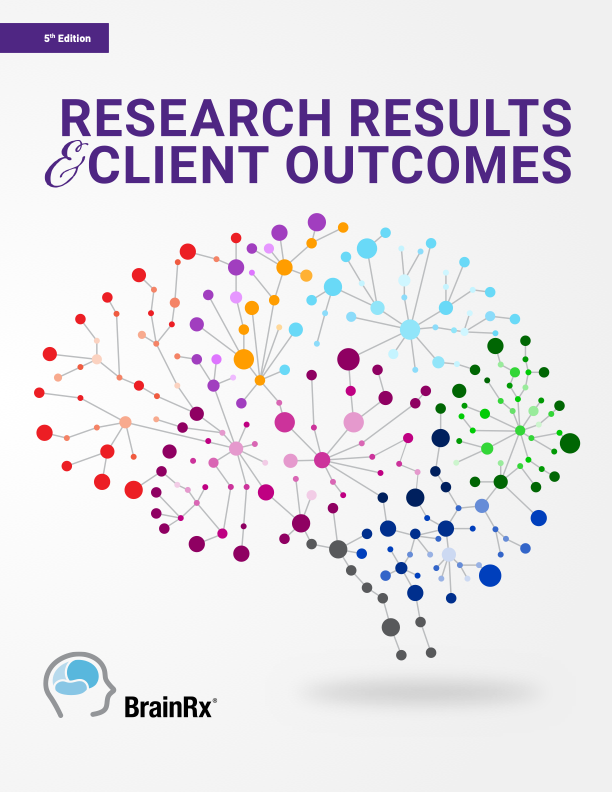Scientific Foundation- The Gibson Institute of Cognitive Research
Established in 2014, the Gibson Institute is dedicated to advancing the science of cognitive development. Through ongoing empirical research, the Institute investigates the impact of cognitive training programs and assessments.
- Findings are published in peer-reviewed journals.
- Presented at leading education, psychology, and neuroscience conferences.
- Focused on real-world cognitive gains that impact learning and life.
Research-Backed Results
From randomized controlled trials to pilot studies, the data tells a powerful story.
- Measurable improvements in cognitive skills
- Documented transfer effects to real-life learning and performance
- Results compiled in: “Research Results and Learning Outcomes – Fifth Edition”
Whether it's attention, memory, processing speed, or reasoning skills—our programs create lasting, scientifically-supported change.
Explore More
Watch Dr. Christina Ledbetter of the Gibson Institute explain how brain training works:
Watch Dr. Amy Lawson Moore share lessons learned from training 101,000 brains:
The Science Behind
Attention & ADHD Research
Moore, A.L., & Ledbetter, C. (2019). The Promise of Clinician-Delivered Cognitive Training for Children Diagnosed with ADHD. Journal of Mental Health and Clinical Psychology, 3(3), 3-8. doi: 10.29245/2578-2959/2019/3.1180
Moore, A.L., Carpenter, D.M., Ledbetter, C., & Miller, T.M. (2018). Clinician-delivered cognitive training for children with attention problems: Transfer effects on cognitive and behavior from the ThinkRx randomized controlled trial. Neuropsychiatric Disease and Treatment, 14, 1671-1683. doi: 10.2147/NDT.S165418
School-Age Children Research
Jedlicka, E. (2017). LearningRx cognitive training for children and adolescents ages 5-18: Effects on academic skills, behavior, and cognition. Frontiers in Education, 2(62). doi: 10.3389/feduc.2017.00062
Carpenter, D., Ledbetter, C., & Moore, A.L. (2016). LearningRx cognitive training effects in children ages 8-14: A randomized controlled study. Applied Cognitive Psychology, 30(5), 815-826. doi: 10.1002/acp.3257
Cognitive Decline Research
James, R., Moore, A.L., Carpenter, D., Miller, T., & Ledbetter, C. (2019). Feasibility of a Functional Medicine Approach to Slowing Clinical Cognitive Decline in Patients Over Age 55: A Multiple Case Study Report. OBM Integrative and Complementary Medicine, 4(3). doi: 10.21926/obm.icm.1903054
Ledbetter, C., Moore, A.L., Mitchell, T. (2017). Cognitive effects of ThinkRx cognitive rehabilitation training for eleven soldiers with brain injury: A retrospective chart review. Frontiers in Psychology, 8(825). doi: 10.3389/fpsyg.2017.00825
Reading Research
Moore, A.L., Miller, T.M., Moore, J.J., Ledbetter, C. (2023). A RealWorld Data Study on the Impact of the ReadRx Cognitive Training and Reading Intervention on Cognition, Basic Reading Ability, and Psychosocial Skills for 3527 Children. Psychology Research and Behavior Management,16,1195-1220. https://doi.org/10.2147/ PRBM.S397665
Gibson Test Research
Moore, A.L., Miller, T.M., & Ledbetter, C. (2021). Reliability Evidence for the Gibson Assessment of Cognitive Skills (GACS): A Brief Tool for Screening Cognitive Skills Across the Lifespan. Psychology Research and Behavior Management, 14, 31-40. https://doi. org/10.2147/PRBM.S291574
Moore, A.L., & Miller, T. (2018). Reliability and validity of the revised Gibson Test of Cognitive Skills, a computer-based test battery for assessing cognition across the lifespan. Psychology Research and Behavior Management, 11, 25-35. doi:10.2147/PRBM.S152781. Available at ncbi.nlm.nih.gov/pmc/articles/PMC5813948/
Copyright © 2025 MindCrafters


